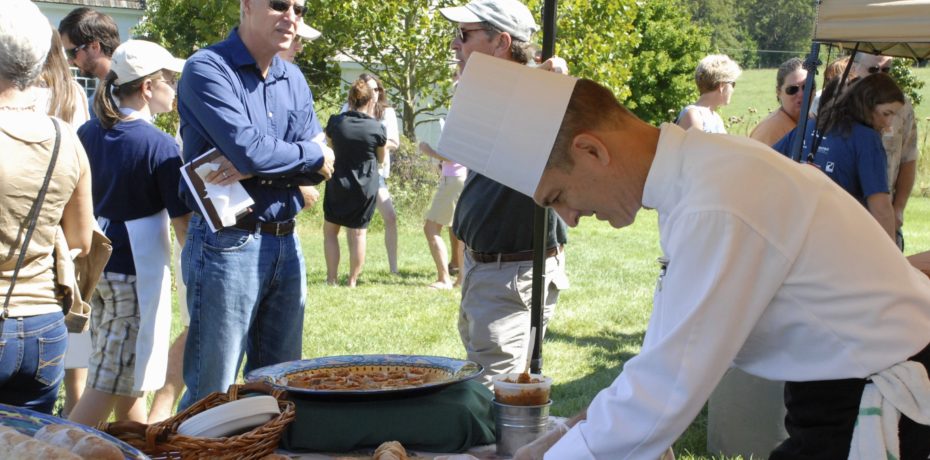In 1986, Slow Food started as a protest against the opening of a McDonald’s restaurant at the foot of Rome’s historic Spanish Step. While born out of a reaction to fast food, this movement was also an attempt to preserve local food traditions and people’s interest in the food they eat, where it comes from, how it tastes, and how our food choices affect the rest of the world.

Over the past 25 years, the Slow Food organization has grown to 1,300 convivia, or chapters, in 150 countries, including 225 chapters in the U.S. and our local Slow Food RVA. It’s no accident that Slow Food chapters are called convivia because, at its core, the movement embraces the celebration of life through sharing good food, good drink and good company. Locally, the Slow Food RVA chapter has supported the national agenda and has built a following through a series of tastings, harvest opportunities, and their inaugural food film festival, Reel Food RVA.
Slow Food is looking to change the industrial food system by supporting food that is good, clean, and fair. Good food tastes delicious and respects season, place and culture. Clean food is grown in a way that protects the environment and gives health to those who eat it. Fair food is accessible to all and gives dignity and fair wages to the people who grow it and pick it.
The local Slow Food RVA chapter envisions a world in which all people can eat food that is good for them, good for the people who grow it, and good for the planet. Breaking bread and sharing a meal is one of life’s great pleasures. Slow Food has historically celebrated the pleasures of food through taste education, the preservation of heirloom varieties of fruits and vegetables, and shared meals.
More recently, the movement in the U.S. has shifted focus under the leadership of Josh Viertel. In a recent interview, Viertel extolled the virtues of galvanizing a vision of changing our food system. Recent campaigns include Time for Lunch, an effort to improve school cafeteria food, and the $5 Challenge Campaign, which demonstrated that a healthy slow food meal can be enjoyed for the same price or less than the junk served up at fast food restaurants.
Under Viertel’s leadership, Slow Food USA has shifted its mission toward social justice and building a movement of engaged citizens. By taking small steps and different choices in their daily lives, these citizens act as policy change agents to help upend our industrial food system, preserve biodiversity and traditional foods, and improve the food environment.
To learn more about the local chapter’s activities and to get involved, visit www.Slowfoodrva.org.

